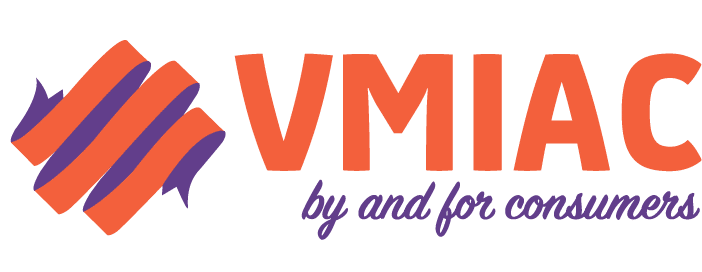by Sue Walker (she/her), a Consumer Consultant and Advocate.
Sue is the Consumer Co-Chair of the Social Prescribing Project Control Group and has contributed her expertise to several projects related to the Victorian mental health system reform. Sue is based in regional Victoria and her lived experience work began in 2017.
Overcoming Challenges in Online Consultations
Post-COVID, the majority of consultations are held online. When I first became involved in the mental health reform, I came across many new acronyms. I started using the chat function in these meetings to find out what the acronyms meant and to ask questions. Chances are others would like to know too!
Sometimes you may be asked to use a new software or online tool. These can be challenging for neurodivergent people. Learning how to assertively express needs and confidently ask questions can help, but this comes with time. Be kind to yourself.
If you are more comfortable reading documents on paper rather than on screens, do ask the facilitators to post printed materials to you. Timing is also important – ask for the materials to be sent to you well ahead of the meetings, not the night before.
Assistive technologies are also helpful. Microsoft Word can read text for you (click Review>Read Aloud), so do ask for documents to be sent in this format.
Zoom and Microsoft Teams don’t always open when you want them to. If possible, allow some time ahead of the meeting to try accessing the online meeting rooms.
Very importantly, advocate to have other people with lived/living experience in the consultation. You can both support each other and work together to amplify the voice of lived/living experience.
Setting and Meeting Boundaries
Setting boundaries is very important. Always care for yourself first: balance your health, activities, family, pets and work life.
I prefer keeping a written diary instead of an online one. I never use a pen to enter my appointments, always a pencil. Consultations may be cancelled or changed, and no one loves a messy diary!
Some e-mail hosts, like Gmail, have an inbuilt snooze function. Use this function on meeting invitations so that they pop up on the day of the meeting, and so that you’re not searching for them.
On the day of the consultation
Before meetings, try to read your notes the night before. Prepare what you need prior – I recommend a clean notebook, a pen, some water, and the contact details of the facilitator in case you have issues accessing the meeting. You may also want to prepare fidget toys (squeeze balls, playdough, or crisp gum leaves) or things that can ground you, such as essential oils and a burner. Citrus oils are great for alertness, and sandalwood, lavender, bergamot or geranium are great for calming. Try to go for a brisk walk or practice calming techniques before entering a meeting.
During the meeting, be sure to ask for a suitable timed break. Five minutes in a 3-hour meeting is not enough – ask for at least 10 minutes. Do something energizing during your break – jumping jacks, walk outdoors barefoot in the grass, grab a warm drink or have a good stretch. It’s important to leave and get some fresh air if you need to, because meetings can be challenging.
After the meeting, utilise the debrief counsellor, or if available, a peer worker. I like getting some exercise afterwards – gym work, yoga, swimming, kayaking, a run or any sport you choose. Take some time to relax and connect; have a mindful superfast walk, pet or brush your dog, or meet a friend. You might want to do a craft activity, listen to some music or meditate – Insight Timer is a good and free app to use. Or, set aside some time to reflect on the meeting, preferably with a warm cuppa!
This article summarises the presentation Sue Walker (she/her) gave at our Consumer Conversations event on Tues March 21 2:10-2:30PM. (See our Eventbrite page)
